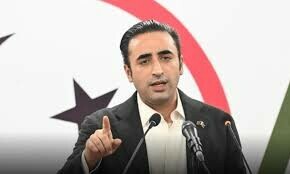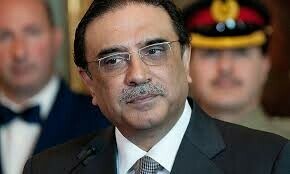ISLAMABAD, Feb 3: Defence needs of Pakistan were discussed at a meeting of the Pak-US Defence Consultative Group here on Thursday and the US side made a commitment to speed up delivery of the promised multi-million dollar military equipment, starting from next month.
However, officials said the meeting held at the defence ministry did not succeed in breaking the deadlock on the issue of F-16s and the two sides agreed to hold further discussions on Pakistan's request for the aircraft.
"Both sides agreed to keep the F-16 issue on the agenda of talks till a final decision is reached," said the US Under- Secretary for Defence, Mr Douglas Feith, while answering journalists' questions.
Sources said Islamabad wanted about 25 F-16s, worth more than $20 million a piece. Mr Feith and Pakistan's Secretary Defence Lt. Gen. (retd) Hamid Nawaz led their sides at the meeting, the first held after Pakistan was declared by the US a Major Non-Nato Ally in June 2004.
Talking to journalists, Mr Feith reaffirmed the US commitment to meet Pakistan's defence needs and bolster defence trade between the two countries. He said: "Pakistan has been developing ideas to undertake defence trade with the US."
The renewed US commitment came after notification by Pentagon of a $1.3 billion arms package for Pakistan, including sale of eight P-3C Orion planes, six C-130 transport planes and trainer aircraft, besides radars and other surveillance equipment.
Lt Gen (retd) Hamid Nawaz said the supply of C-130 aircraft would begin by mid-March and expressed the hope that the delivery would be on schedule. He said many defence items were being supplied to Pakistan and more were in the pipeline.
He said regional security issues, including Pakistan-India relations, and the post-election situation in Iraq also came under discussion during the meeting.
Mr Feith appreciated the steps taken by Pakistan and India to ease tension and resolve outstanding issues through a process of composite dialogue. He said the US was in favour of continuation of dialogue between India and Pakistan.
"We are taking serious interest in the dialogue so that people of Pakistan and India may live in peace and stability. We are in favour of steps for peace and security in the region," he said.
Later, briefing media-persons at the American Centre, Mr Feith said: "During the DCG meeting, we had a wide-ranging discussion including the outcome of Iraqi elections, successful completion of the electoral process in Afghanistan, ongoing dialogue between India and Pakistan, war on terror, Pakistan-US defence trade relations and other regional issues."
In response to a question, Mr Feith said Pakistan being an important neighbour of Iran could play an effective role in persuading it to relinquish its ambition to become a nuclear power and, instead, follow the Libyan example which would help her (Iran) to be better off without nuclear weapons.
The US, he said, was supporting all efforts which were being made by the European Union and elsewhere in the world, and Pakistan was an important voice in the world to dissuade Iran from becoming a nuclear power.
On the issue of Baglihar Dam which has triggered tension between India and Pakistan, he said the US supported resolution of all outstanding issues between the two countries through diplomacy.
When specifically asked if any concrete progress was made at the DCG meeting, he said the meeting was part of the ongoing active collaboration in all fields. President Bush, he added, had already announced a financial assistance of $300 million per year for five years.
The US is providing helicopters and advanced military equipment to Pakistan and both countries have substantial defence trade and have common concerns. When a journalist asked about the status of investigations into the A.Q. Khan network, the US Ambassador to Pakistan, Mr Ryan Clark Crocker, said Pakistan had assured the US that it had completely destroyed the network and would address any query surfacing in future.














































Dear visitor, the comments section is undergoing an overhaul and will return soon.